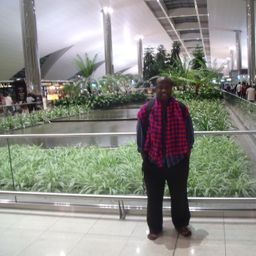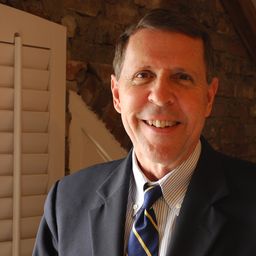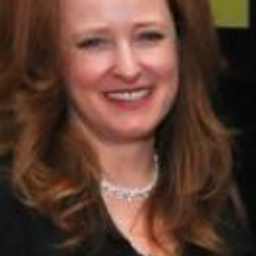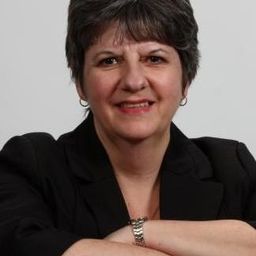
Research Interests: I am interested in how monumental ruins and historic buildings can help in understanding the transformations that have taken place over the past one millennium. I also have interests in understanding how cultural heritage sites and material cultures can be used to bring peace and harmony among the heritage stakeholders together with improving the local livelihoods through, for example, cultural tourism and place branding.
Current Project(s): My current work which is at the embryonic stage, seeks to investigate the advantages of traditional management systems as alternative ways to manage cultural heritage and produce outputs to improve local people’s livelihoods. The study is in line with the 2030 United Nations Sustainable Development Goals Agenda and the 2063 Africa Agenda ‘The Africa We Want’ both recognizing heritage sites and other heritage elements like oral traditions and sacred places as important to a broader economic, social, cultural and environmental contexts including the identity and well-being of societies. My aim here is to establish the means in which cultural heritage values may be well-managed at the local level and, be used to bring grassroots developments in Africa. I am specifically concerned with the concrete actions that need to be taken to efficiently and cheaply safeguard cultural heritage and, integrate heritage in all its guises to bring inclusive socio-economic development at the local level in NE Tanzania.
Sessions auxquelles Dr. Elgidius Ichumbaki participe
Lundi 6 Juin, 2016
Sessions auxquelles Dr. Elgidius Ichumbaki assiste
Vendredi 3 Juin, 2016
What does heritage change for tourism? | Le patrimoine, ça change quoi au tourisme? Ce débat veut interroger les relations entre le tourisme et le patrimoine et dépasser ainsi les idées reçues sur l'antagonisme entre le tourisme "corrupteur" et le patrimoine qui en serait la victime. Il s'agit donc de repenser le tourisme comme un réel acteur du patrimoine, de sa valorisation et de son appropriation, y compris par les populations locales. Cela présuppose, au p...
This forum will explore the current directions of critical heritage studies and what makes ACHS distinctive. Panel members will discuss what the term critical means to them, and what directions they would like to see develop in the future. To help develop an open dialogue, the session will also give considerable time to contributions from the audience.
Welcome addresses and cocktail, followed by the Concordia Signature Event "The Garden of the Grey Nuns". As the opening ceremony and cocktail take place in the former Grey Nuns' Motherhouse, recycled into campus residence and reading rooms by Concordia University, delegates will also have the possibility to discover the video Three Grey Nuns (3 minutes, by Ron Rudin and Phil Lichti. Three Grey Nuns recount their memories of communal life in the Grey Nun’s Motherhouse. Built...
Samedi 4 Juin, 2016
What if we changed our views on heritage? And if heritage has already changed? While, on the global scene, states maintain their leading role in the mobilization of social and territorial histories, on the local scale, regions, neighbourhoods and parishes have changed. Citizens and communities too: they latch on to heritage to express an unprecedented range of belongings that no law seems to be able to take measures to contain, often to the discontent of...
Most of what we experience as heritage emerges into conscious recognition through a complex mixture of political and ideological filters, including nationalism. In these processes, through a variety of devices (museums, scholarly research, consumer reproduction, etc.), dualistic classifications articulate a powerful hierarchy of value and significance. In particular, the tangible-intangible pair, given legitimacy by such international bodies as UNESCO, reproduces a selective ordering of cul...
Dimanche 5 Juin, 2016
"What does heritage change?" is a multifaceted question to which the answer(s) are in primary respects related to real-life negotiations among different groups of citizens, cultures, races, ethnic groups, sexual identities, and social classes about received, official and/or widely accepted or accomodated intangible attributes, cultural traditions, historic monuments, buildings, and other transmitted or revived historical legacies. Heritage designated by and for whom, for what motivations, an...
Lundi 6 Juin, 2016
Le patrimoine fait aujourd’hui l’objet d’attentions autant que d’agressions et de destructions. Cela peut s’expliquer par les difficultés de son identification ou de sa conservation. Cela peut plus profondément s’expliquer parce que, dès le départ, il célébre un événement ou conserve une mémoire qui peut être ou devenir une source de dissenssions et de conflits politiques. Enfin, sa reconnaissance suscite des gains économiques pour les uns mais des pertes pour les autres. Mais peut-être...














